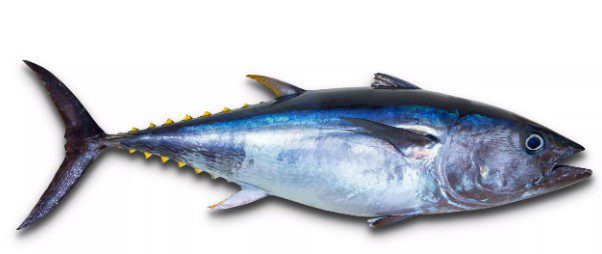

Ahi tuna, or yellowfin tuna, can be a beneficial addition to a dog’s diet when served in moderation. It is a good source of omega-3 fatty acids, which support cardiovascular health, reduce inflammation, and promote a healthy coat and skin. Additionally, it is rich in magnesium, phosphorus, potassium, and B vitamins, which are essential for regulating various organ functions in the body. When fed in small amounts, ahi tuna also provides plenty of lean protein, which helps with cell and muscle development and repair.
Ahi tuna is high in omega-3 fatty acids, which promote cardiovascular health, reduce inflammation, and help keep dogs’ coats shiny. It also contains magnesium, potassium, phosphorus, and B vitamins which are essential for regulating various organ functions. Additionally, it is an excellent source of lean protein which helps with cell and muscle development and repair.
Unfortunately, ahi tuna contains moderate to high levels of mercury, which can be toxic in excess amounts. There is also a risk of hypernatremia if fed too frequently, as ahi tuna is high in sodium. Additionally, raw ahi tuna contains thiaminase, which can lead to thiamine deficiency, and the bones can be a choking hazard.
For optimal safety and health, ahi tuna should be cooked thoroughly without any added seasonings. The bones should also be removed before feeding the ahi tuna to your dog. Ahi should be fed in moderation in occasional amounts.
Dogs can eat ahi tuna in moderation as it comes with some health benefits and risks too. Commonly referred to as Yellowfin, or Ahi Tuna, it is a variety of tuna that is mostly found in saltwater and usually is accessible and affordable. Ahi tuna is high in omega-3 fatty acids which promote cardiovascular health, reduce inflammation, and helps in maintaining a shiny coat. It is also a good source of lean protein, magnesium, potassium, phosphorus, and B-vitamins which helps regulating various organ functions. Although, it carries moderate to high mercury levels, which can be toxic when consumed excessively, leading to mercury poisoning. In addition, it is high in sodium, and can contain thiaminase, which might cause thiamine deficiency. To be on the safer side, cook ahi tuna completely before serving to your dog, and remember to take out the fishbone as it can be a choking hazard. If you don't want to serve ahi tuna, other alternatives like salmon or anchovies, which have better omega-3 content, can be served.
Are some dogs more prone to developing mercury poisoning from consuming ahi tuna than other dogs? Generally speaking, any type of tuna is a risk factor for developing mercury poisoning since all tuna contain some amount of mercury. However, certain factors such as age and size can play a role in how a dog metabolizes and processes the mercury by their body. Have your pet experienced eating ahi tuna? Let me know how it went in the comments! As long as you are mindful of the risks and keep the servings in moderation, your pup will reap the benefits from consuming ahi tuna. Wishing you and your pup a happy and healthy life together!